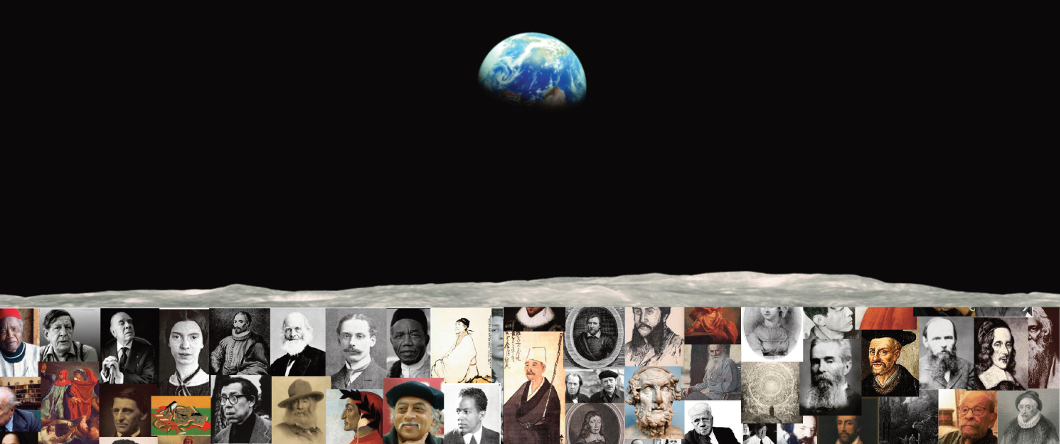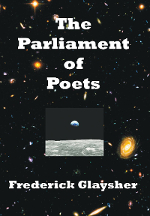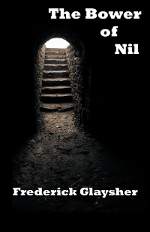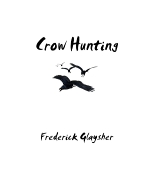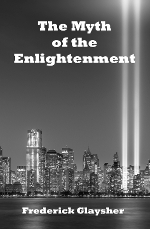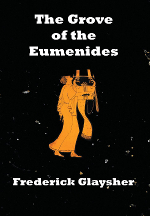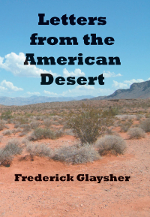Welcome to Earthrise Press
Thanks for Visiting
I'm an epic poet, rhapsode, and author or editor of ten books,
and have given over 70 readings and performances in the USA, Canada, and the UK.
Frederick Glaysher
"To carry forward the work of creation in a disintegrating society, some alternative channel must be found."
—Arnold Toynbee, A Study of History. 1972 Abridged Edition (228).
POETRY
The Parliament of Poets: An Epic Poem. Thirty years in the making, The Parliament of Poets takes place partly on the moon, at the Apollo 11 landing site, the Sea of Tranquility.
Apollo, the Greek god of poetry, calls all the poets of the nations, ancient and modern, East and West, to assemble on the moon to consult on the meaning of modern life. The Parliament of Poets sends the main character, the Poet of the Moon, on a Journey to the seven continents to learn from all of the spiritual and wisdom traditions of humankind.
One of the major themes is the power of women and the female spirit across cultures. Another is the nature of science and religion, including Quantum Physics, as well as the “two cultures,” science and the humanities.
Reviews
"A great epic poem of startling originality and universal significance, in every way partaking of the nature of world literature. Glaysher is in a creative dialogue with the greatest epic poets of all time. He is bringing together in beautiful verse form diverse visions of humanity from all over the world, frequently casting them in the form of spatial and cosmic imagery. A pure joy. Contemporary 'world literature' at its best.” —Hans G. Ruprecht, Carleton University, Ottawa, Canada
"Very readable and intriguingly enjoyable. Frederick Glaysher's hours of dedication have produced a masterpiece that will stand the test of time." —Poetry Cornwall, No. 36, England, UK
The Bower of Nil: A Narrative Poem. Structured around classical Greek choral movements, the first section ponders themes from Japanese Buddhism, while the second and third survey Western philosophy from Aristotle and Plato through Descartes, Pascal, Kierkegaard, Nietzsche, Wittgenstein, Heidegger, Derrida, Jung and Karl Jaspers, and others, in a powerfully dramatic grappling with philosophy, East and West.
Peter Marsh, an academic philosopher struggling with analytical philosophy, weighs modern life in a conversation with his friend, David Emerson, a businessman. Brought together after long separation by the brutal murder of Mary, Peter’s wife, a time of devastating loss and crisis, their friendship inspires a dark night of the soul, during which Peter’s meditations range over several hundred years of philosophy, politics, religion, social change, the dilemmas of existence, evoking a vision of the complexities of the 21st Century, the United Nations, and global governance.
Review
"This is a doorway into the future... Colored richly and satisfyingly with symbols (e.g., the name Peter, the lily, the lantern) that speak directly to the psyche—the way that artwork spoke to the illiterate in the Middle Ages." —Poems Niederngasse
 Into the Ruins: Poems. Lyric poems and dramatic monologues. Into The Ruins confronts much of the human experience left out of the balance. Suffused with a global tragic vision, into the ruins of the 20th Century, Glaysher has his gaze fixed firmly on the 21st.
Into the Ruins: Poems. Lyric poems and dramatic monologues. Into The Ruins confronts much of the human experience left out of the balance. Suffused with a global tragic vision, into the ruins of the 20th Century, Glaysher has his gaze fixed firmly on the 21st.
From Preface
"The work of such artists as Francisco Goya in his war paintings and Los Caprichos, Kaethe Kollwitz’s drawings, Wilfred Owen’s poems of WWI, Randall Jarrell’s “The Death of the Ball Turret Gunner,” and many of the poems of Robert Hayden, a fellow Detroiter, were powerful examples and influences on me that spoke to my sense of life and helped open the way forward for me as a poet."
Reviews
"At high points, his poetry captures the feelings of contingency and horror felt by many but expressed well by few... Glaysher fits well within the literary tradition, as he shows with his allusions to or mentions of, among others, Augustine, Dante, Yeats, Dostoyevsky, and Hayden; however, his voice is distinct. Among contemporary poets, few have a vision as darkly haunting.... Few also have the knowledge and the ability to handle contemporary issues with such presence of language. Out of the mass of recent poetry books, here is one you should read." —William Allegrezza, Jack Magazine
"A litany of horrors updating Eliot’s Waste Land, the book upbraids poets for turning inward only to concerns of the self." —North American Review
Crow Hunting: Songs of Innocence. By Frederick Glaysher. eChapbook. Preface. Earthrise Press, 1980; 2010. 26 pages. ISBN 9780967042152. eBook. $7.99
An eChapbook of nine poems written after the poets Henry Vaughan, Blake, Bryant, Emerson, Basho, Hafez, Attar, Rumi, and Tagore.
PROSE
The Myth of the Enlightenment: Essays. These essays and reviews were all written during the 21st Century, with many of them central to Glaysher's evolving intellectual and spiritual struggle to write his epic poem, The Parliament of Poets.
The essays open up Glaysher’s own biography and his life-long interest in the writings of Plato, Leo Tolstoy, Rabindranath Tagore, John Milton, Saul Bellow, Robert Hayden, and other poets and writers, offering a fresh, new vision for literature and culture.
Reviews
"I'm glad it exists and I'm grateful for the wisdom it sends my way." —Laurence Goldstein, Department of English, University of Michigan
"In an era in which the value of human life has become as precarious and narrow as the study of the humanities itself, we need Glaysher’s voice more than ever." —Phillip M. Richards, Department of English, Colgate University
The Grove of the Eumenides: Essays on Literature, Criticism, and Culture. Frederick Glaysher evokes a global vision beyond the prevailing postmodern conceptions of life and literature that have become firmly entrenched in contemporary world culture.
East and West meet in a new synthesis of a global vision of humankind ranging over classic literature, ancient and modern, both Western and non-Western, from the dilemmas of modernity in Yeats, Eliot, Milosz, Bellow, Dostoevsky, to Lu Xun, Ryuichi Tamura, Kenzaburo Oe, Naguib Mahfouz, R. K. Narayan, among others, from mimesis and deconstruction to the United Nations, with extensive essays on Chinese, Japanese, and South-Asian literature. The Grove of the Eumenides is the foundation upon which Glaysher's epic poem is built.
From New Preface (January 29, 2024): "All the essays in The Grove of the Eumenides were written after 1982 when I wrote my first draft of a plot outline for my epic poem The Parliament of Poets. These essays constitute and record my background study, as it were, over a period of more than twenty years..."
Letters from the American Desert: Signposts of a Journey, A Vision. Glaysher reflects on the cultural, political, and religious history of Western and non-Western civilizations, pondering the dilemmas of postmodernity, in a compelling struggle for spiritual knowledge and truth. In what is a highly autobiographical work, fully cognizant of the relativism and nihilism of modern life, Glaysher finds a deeper meaning and purpose in a universal Vision.
UN Plaza, International Day of Peace, San Francisco, September 21, 2025. 26:49 minutes.
"A Little Girl Alongside a Road" about an experience in 1994 (correct date) near Dunhuang, Gansu, relatively close to Xinziang, where perhaps as many as 1.8 million Muslim Uighurs have now been thrown into concentration camps and slave labor by China and subjected to horrifying abuse. We human beings on this planet must honor and protect their dignity and humanity.
October 18, 2021
Spiritual Themes in the German Philosopher Karl Jaspers and British Historian Arnold Toynbee
Universalist Unitarian Church of Farmington, Michigan. August 7, 2022. Starts at 16:58
Frederick Glaysher speaks on the similar spiritual themes in the writings of Jaspers and Toynbee, especially Jaspers on the Axial Age and Toynbee on the need for a universal religion and world government to bring humanity together, with some mention of Ralph Waldo Emerson and Karen Armstrong's own book The Great Transformation, also on the Axial Age.
Sunday Service - Streamed live. https://youtu.be/rZnYfyKws7A?t=1018
Tolstoy's Universality
Universalist Unitarian Church of Farmington, Michigan.
July 14, 2019.
Starts at 22:02
From 1884 until Tolstoy's death in 1910, he worked on a compilation of spiritual and moral excerpts from all of the major world religions, which he called at various times, A Wise Thought for Every Day, Thoughts of Wise Men, Cycle of Reading, The Path of Life, and A Calendar of Wisdom. The scope of his effort can be gleaned from the titles. Tolstoy's selections are from Christianity, Buddhism, Confucianism, Taoism, Roman philosophers, Emerson, the Unitarian 19th Century minister William Ellery Channing, who was a major influence on the American Transcendentalists, and so on. A Calendar of Wisdom is worth reflecting on today. Includes selected Readings.
Download the Program for Solo Performance
Youtube@FrederickGlaysher/playlists
Other Readings and Performances
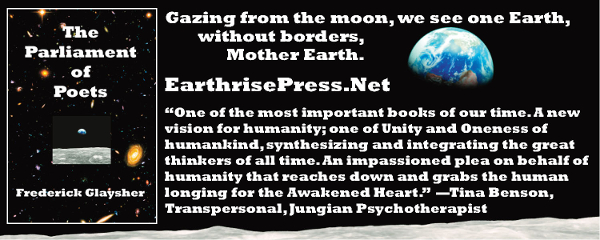
Parabola, Spring 2019. Change (51).
